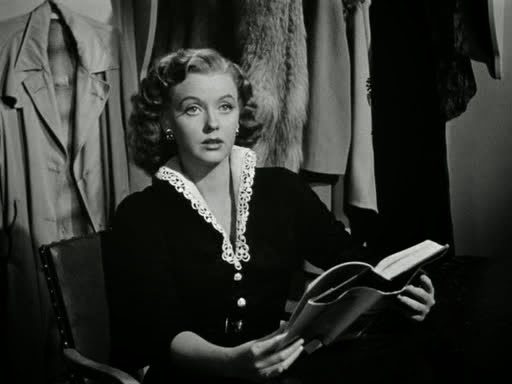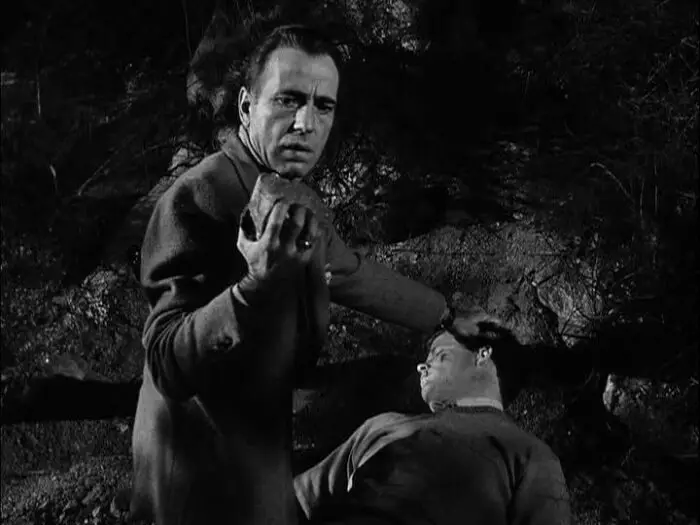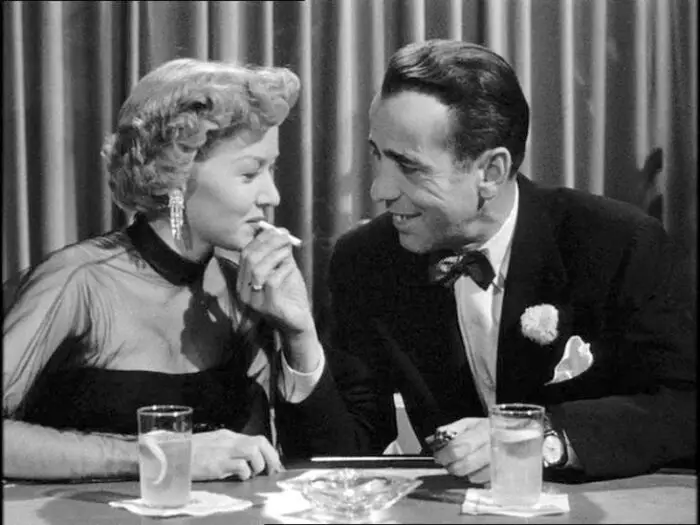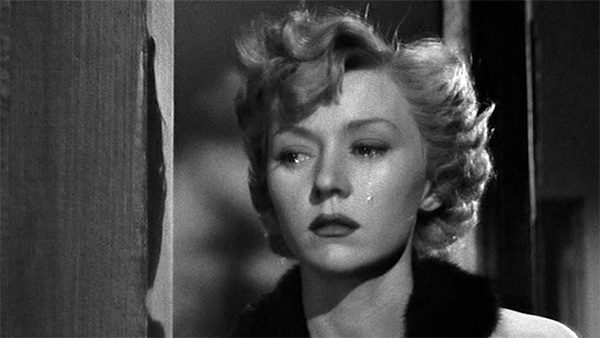In a world where, quite rightfully, we are socially and culturally more open about toxic masculinity and the damage caused by the violence of the men who embody it, we as audiences and critics alike are required to re-evaluate our attitudes to works of art that seem, on whatever level and to whatever extent, to empathise with or romanticise such problematic protagonists.
Take, for instance, Breaking Bad’s Walter White. Is it right to celebrate him as some sort of folk anti-hero as he lovingly caresses the implements of his drug trade at the moment of his death, when we know how much pain and despair he has wrought on his friends and family? Likewise, I have worked in call centres and sales offices where people have unironically celebrated and compared themselves to Jordan Belfort, Leonardo DiCaprio’s character in The Wolf of Wall Street, focusing on the money and the copious amounts of coke and forgetting the adultery against Belfort’s first wife and the physical assault on his second.
With this in mind, In a Lonely Place, Nicholas Ray’s excellent 1950 film noir, is fascinating in this context, being, in the phrase used by philosopher Albert Camus, a “sun which leaves no shadows.” In a Lonely Place does not shy away from the violence of lead character Dix Steel’s (Humphrey Bogart) behaviour, and where it uses ambiguity, it does so to create suspense in the plot in the viewer, throwing doubt on whether Steel has actually killed but leaving no uncertainty over the idea that Steel is certainly capable of doing so.
Here, I want to examine how In a Lonely Place transcends its form as what the studio would have seen as just another genre flick or star vehicle, and brings to the light a portrait of a complicated, violent man, without particular condemnation, but also without romanticising or sweeping his violent behaviour away. It offers no definite judgements either way, but chooses to conclude by focusing on the tragedy and the emotional destruction inflicted on and by the two central protagonists, perhaps the biggest judgement of all in its way.
In a lonely place indeed…
Introducing Dix Steele
Dix Steel is a once-successful Hollywood screenwriter, now gone to seed—even the kids who ask for his autograph call him a “nobody.” His long-suffering agent Mel is trying to persuade Dix to adapt a trite novel into a script. It’s desperate times; as Dix says, “I need the money and you need the ten per cent.” Rather than read the novel himself, Dix takes the hat check girl, Mildred Atkinson, from the swanky drinking and dining establishment used by the Hollywood glitterati and down at heel alike, back to his apartment so that she can summarise the story to him. He quickly surmises that the story is an epic of hot melodramatic garbage and, too tired to drive, sends the girl around the corner to find a taxicab stand to take her home.
Of course, she never makes it.

Dix is awoken by the police the next day to be informed that the girl has been found in Benedict Canyon, having been murdered and dumped from a moving car. As Dix is the last one known to have seen the girl alive, naturally he is the prime suspect. Only the testimony of the beautiful, enigmatic Laurel Gray, Dix’s new neighbour, gets Dix off the hook. The police won’t leave him alone, though, and as he and Laurel fall passionately in love, the pressure of the investigation feeds into the intensity of Dix—with heart-breaking results.
The testimony of Laurel Gray should be enough for both us, as the audience, and Laurel herself, considering we trust her as a character. And yet, for both us, it is not enough. The central pivot of the film is the way the narrative oscillates with doubt, giving no sense of certainty about the murder of Mildred and Dix’s innocence therein.
What is it about Dix that engenders this sense of doubt?
An Inherently Violent Nature
From the outset, the film works to establish the violent nature of Dix. The film starts with Dix driving through the downtown L.A. streets familiar from so many other film noirs. He stops at a red light, only for another car to pull alongside him. The passenger recognises Dix as the screenwriter for her last movie; she chats giddily to Dix but the driver, her husband, is not so sociable. He tells Dix to stop bothering his wife. This is an element of unnecessary masculine territorialism here, as it was the man’s wife who had started talking to Dix, not the other way around; in fact, Dix seems to be responding to her out of politeness only, not out of any desire to actually talk.
Rather than try to cool the situation down though, Dix’s first instinct is to insult the man, telling the wife that she shouldn’t have married the man, regardless of how rich he is. This provokes the man to demand that Dix pull over to the curb. Dix calls his bluff and tells him to get out and fight right then and there in the road. The man, though, has other ideas, driving straight off and out of there as quick as he can. It proves two points: that men often feel they have to project this image of aggression and strength, regardless of whether they can actually back it up; and that Dix is a man of his word and has one hell of a temper, something he is more than willing to act on.
And act on he does, assaulting a smug, arrogant young director who not only slights but full-blown insults an alcoholic old actor who is clearly down on his luck. Dix more than gets the better of the director, who is taken away before Dix can do him more damage. You could argue, if you were making distinctions between acts of violence based on their virtue, that Dix was perhaps justified in his actions here. Dix isn’t the only one who dislikes the director, as a group of producers call him a “menace.” The director is certainly obnoxious, claiming his dad, a director who had worked with the actor, had “made a star out of a drunkard” before tipping ash from his fancy cigar into the actor’s drink. It’s disgusting behaviour and, if not Dix, there’s a good chance someone else might have clocked him before too long.
But righteous anger does not appear to be the only type of rage that Dix has inherited. The police, with a look of grim disgust, run down a list of Dix’s previous charges: “February 1946: beer parlor brawl on Santa Monica Boulevard. Brought to station for questioning. Discharged with warning. Next number, March 1947: while working as screenwriter, had fistfight with his producer. Fractured producer’s jaw. Fired. No charges preferred. Next number, June 22, 11:00 PM. Frances Randolph screams for help. Charges Steel beat her up. Then denies having made the charge. Alleges nose broken by running into a door.” It’s a horrifying catalogue of brutality. As one detective says, Dix likes “to play rough.” It’s an understatement all the more disturbing for what lies beneath it: this isn’t playing.
A Life-like Demonstration
There are two further scenes, intense central moments in the film, that give us as the audience and Laurel as Dix’s partner further reason to doubt Dix’s innocence. Dix’s friend Detective Brub, who also served with Dix in the army, has unbeknownst to Dix, invited him to dinner with Brub and his wife Sylvia at the behest of Captain Lochner to see if Dix lets anything slip. This set-up makes the scene all the more fascinating in that, without revealing any link to the crime whatsoever, Dix manages to convince both Brub and Sylvia with the passion of his performance and cold, calculated perversity of his logical thinking, that he is guilty of the murder of Mildred Atkinson.
Dix makes the opening gambit by telling Brub, “tell you what’s wrong with you and Lochner—you don’t see enough whodunits. We solve every murder in less than two hours and some of them are tougher than the Atkinson case.” Brub responds with the insinuating remark, “that’s because you know who did it from the beginning.” Dix, perhaps fortunately for Brub, doesn’t pick up on the insinuation and instead offers to help solve the case.
Sitting Sylvia and Brub together, to replicate the driver and Mildred Atkinson in the car she was tossed out of, Dix sits in front of them, directing them like a maestro leading his actor charges through an on-set rehearsal. As Dix relates the action of the evening, directing Brub to put his free arm around Sylvia’s neck, the mood changes starkly. Dix looks like a man possessed, the only break in the darkness of the room shrouding him being a well-placed spot of light across his face, picking out the eyes that take on a maniacal quality as Dix begins to lose himself in the moment.

His speech speeds up with excitement as he relates, like a shaman in a trance uttering a mantra, how Brub can’t see her “bulging eyes and protruding tongue.” He can barely contain his glee as he unleashes comments that seem to be related to some personal memory: “you love her, and she’s deceived you. You hate her patronizing attitude. She looks down on you. She’s impressed with celebrities. She wants to get rid of you. It’s wonderful to feel her throat crush under your arm.” Like a hypnotist, Dix repeatedly instructs Brub to squeeze harder, and the conviction and intensity of Dix’s commands are so compelling that Brub actually does what he’s told until Sylvia yells at him in pain to stop, and breaks the spell.
It’s a wonderful scene, enhanced excellently by the use of shade and carefully placed light, and the malevolent magic of Bogart’s performance, his speech speeding and slowing and creating wonderful rhythms that carry the audience away with them. His eyes sparkle with vicious joy as he bears his teeth like a vampire in a wicked grin. It’s a masterful demonstration of acting and one that is rightfully celebrated as one of the best in Bogart’s filmography.
There’s two things that we can take from this scene, other than terrified enjoyment. One is that Dix has a cold, logical way of putting himself into events and understanding them. He tells Brub that the murder had to take place in the car because if it didn’t, then the killer would have put her in the back, therefore he would have had to stop the car to throw her out, and there was no sign of a stop. When Sylvia suggests that Dix forgot her hands, with which she could have scratched her assailant’s eyes out, Dix points out that her first instinct was to grab the killer’s arm to try and loosen his grip: “that’s where you lost the battle, just like Mildred did.” Dix’s lack of emotion lets him see the case clearly. Also, as he blithely tells Sylvia, “I’ve had a lot of experience in matters of this kind. I’ve killed dozens of people—in pictures.”
The other thing is that there is a clear streak of misogyny that runs through Dix. He takes absolute joy in the way he runs down the woman in his demonstration as if taking revenge on an imagined figure or a very real person that hurt him in his past. The combination of tone and content present a very real hatred that manifests itself in Dix’s trance-like mantra to squeeze the victim’s neck harder.
There’s the possibility that the aforementioned Frances Randolph might have been the figure he was thinking of; he broke her nose, after all. Earlier in the film, before this is revealed by the police, Dix is approached by Frances at the dinner club, where she reminds Dix of how she used to read to him. With a mixture of tired resignation and disdain, he replies that “since then, I’ve learned to read by myself.”
This moves Frances to ask “do you look down on all women or just the ones you know?” Dix argues that he was pretty nice to Frances, to which she responds, “no, not to me. But you were pretty nice.” There’s an implied suggestion here that Frances is not the only woman Dix has been awful to in the past. And she won’t be the last either.
“You’ll Kill Him!”
The other pivotal scene occurs later in the film. Sylvia inadvertently reveals that Laurel has spoken to Lochner again, something Laurel concealed from Dix because she didn’t want to upset him. Dix storms away to the car, feeling lied to and persecuted regarding the murder. Laurel manages to jump in the car as he makes to drive off, but she’s in for a bumpy ride.
A series of POV shots show Dix dicing wildly with the other cars on the road, whilst a close up on the speedometer shows the velocity at which Dix’s anger is speeding. Laurel offers Dix a cigarette and he just looks at her—or perhaps through her.
Another car tries to turn onto the road, only to be nearly smashed into by the speeding Dix. As luck would have it, the car is only scratched, but the young driver is furious. Dix tells him to take it easy, by the driver begins to say he ought to drag Dix out. Big mistake
Not only does Dix knock him on his ass, but he also does what he perhaps would have done to the director if he hadn’t been pulled away by the other patrons. A close up of Dix from below enhances his monstrous form at this point as we see the onslaught of fists flying down at what must be an unconscious young man by that point. Dix is clearly in no state to discern when enough’s enough. Or is he? Does he have a different idea of ‘enough’? A shadow crosses his face and he picks up a great big rock from the ground, holding the young river by the hair and raising the rock with the intention of smashing his face in. It’s only Laurel’s shout of “Dix, stop! You’ll kill him!” that breaks Dix out of the malevolent trance he’s found himself in, jolting him to his senses and causing him to put the rock down and drive away.

Seeds of genuine doubt as to Dix’s innocence have been sown throughout the film, but this might be the first real moment that this sense of doubt for both the audience and for Laurel transforms into near-certainty. Fistfights are one thing, but here we are confronted with a Dix that would have genuinely killed a man if it wasn’t Laurel’s intervention. Was this what happened to Mildred Atkinson? There was no one to intervene, so did his violence reach its logical conclusion? As we find out by the film’s conclusion, Dix is innocent of the crime the law has accused him of. But he is guilty of other crimes nonetheless.
But what triggers Dix? What sets off his explosive outbursts? Or is there something inherent in Dix that would always find its way out?
Where Honour Meets Narcissism
One possible source of Dix’s anger is a sense of frustrated honour or a sense that the values for which he stands for are being insulted. We know Dix takes pride in his work; he tells his agent Mel early on in the film that he “won’t work on something I don’t like.” He responds to the incredulous Lloyd Barnes, who criticizes Dix’s last picture, by telling him that he’s nothing more than “a popcorn salesman.”
This suggests a moral centre; a sense that Dix is against the commodification of things that really mean something—whether art or people. Look at the way Dix defends his friend, the former star Charlie, who has fallen onto hard times and is on the losing end of a battle with the bottle. Not only does he assault the director who runs poor Charlie down, but he insists that he, Mel and Lloyd sit and drink with Charlie when the other two men are clearly not so keen to be associated with him. It’s also implied that Dix regularly gives Charlie money, even though we know Dix is hurting for income himself.
Viewed through this lens, you could be forgiven for seeing Dix’s violence as a moral act; his way of defending the weak and decent and standing up for the essential, which is at risk of commodification. If it was just these incidents, we might get away with such a summation. But we also know that Dix is easily provoked, as his police record, full of accusations of arguments and fits of rage, attests to.
Further examination of the film reveals a severely unstable narcissistic streak running through Dix. It’s not enough to fight for a cause for such a self-centred soul. When you cannot brook the possibility that you can be in any way incorrect or the cause of a problem, every fight you undertake is a moral one—you’re defending yourself from being attacked. What can be more moral to a narcissist than defending themselves against ‘misguided’ criticism? As Mel tells Laurel, “Dix is a tremendous ego, he can’t take defeat.”
Dix reveals as much when he vents to Laurel after nearly bashing the young driver’s head in with a rock. Remember, it was Dix’s dangerous driving that caused the near-crash. But Dix is having none of it: “These guys in their hopped-up cars, they think they own the road…this guy asked for it. I’ve had a hundred fights like this.” This was not the first time and it will not be the last. Laurel asks Dix if he was proud of it, to which his response is extremely revealing: “no, but I’m usually in the right. I was this time. You heard what he called me. Nobody can call me the things he did.”
In other words, there’s something in Dix that cannot accept any other version of reality than one where he is in the right, above blame or criticism. Because of this, his psyche will not allow him to be insulted, no matter the severity of the slight. Hence Laurel’s incredulous response to Dix’s claim that no one can call him what the driver called him: “a blind, knuckle-headed squirrel. That’s real bad.” Even Dix can’t take it 100% seriously at that point; he slightly concedes defeat by giving her a bemused look and telling her to drive. On some level, with a moment of introspection, Dix is self-aware, but importantly, he cannot be self-aware in the moment. Almost akin to the idea of ‘living in the moment,’ Dix is too much subject to his over-spilling temper as these moments occur. Introspection can only occur afterwards, if at all, and by then it’s too late.
There’s an intriguing insinuation throughout the film that Dix’s service in the war might be a contributing factor to his temper, a kind of PTSD manifesting itself in violent outbursts. The fact that Dix has not been able to write a hit since before the war implies that the conflict changed Dix’s mental state, and for the worse—as if he can no longer enter the positive mindset needed to engender genuine creativity. It’s certainly notable that when Dix is directing Brub and Sylvia in the enactment of the murder that he states, “you’re an ex-GI. You know judo. You know how to kill a person without using your hands.” How deeply and unconsciously was Dix putting himself into the murder scene, trying to exorcise some demons via a murder fantasy where he can let his imagination and his temper run free?
Perhaps most telling, the murder enactment, as we’ve noted, saw Dix take out his frustrations on a woman, real or imagined, not really Mildred as if he was taking revenge on womankind for some hurt he had experienced in the past. And in Dix’s relationship with Laurel, we probably get the biggest clue to unlocking the motivations of Dix.
A Short But Beautiful Interlude of Love

Early on in the film, when Captain Lochner is questioning Dix over Mildred’s murder, Lochner makes it very clear that he finds Dix’s behaviour strange; that’s there’s a real lack of feeling in the man: “You’re told the girl you were with last night was found in Benedict Canyon, murdered, dumped from a moving car. What’s your reaction? Shock? Horror? Sympathy? No. Just petulance at being questioned, a couple of feeble jokes. It’s puzzling, Mr Steele.”
It’s clear Lochner can barely contain his disdain for Dix and his lack of feeling. Dix says as much (“…unless you plan to arrest me for lack of emotion). Brub verifies this in a way when he states, “It’s hard to tell how Dix feels about anything. None of us could ever figure him out.” It puts me in mind again of Camus’ famous afterword to The Stranger: “In our society any man who doesn’t cry at his mother’s funeral is liable to be condemned to death.’ I simply meant that the hero of the book is condemned because he doesn’t play the game.”
Dix is certainly guilty of not playing the game, and not caring about what people expect him to care about. But he is certainly not emotionless or without feeling. The compassion he shows to Charlie and the intensity of his temper is evidence of this. No, Dix’s problem is that the subjectivity of his emotions overwhelms him to such a degree that he is unable to achieve a balanced perspective on things. He projects his feelings and intensity onto those around him, in particular onto the women in his life.
We know, from the interactions with and references to Frances, that Dix does not have the best relationship with women. So when he seems to idealise Laurel very early on, calling her “the one that’s different” and that he’s glad she’s on his side, even though he only really met her for the first time shortly before at the police station, it’s concerning. Laurel is quite clear on what she doesn’t want: she doesn’t want to be rushed.
Still, as the pair fall in love, it looks like we as the audience are to be proved wrong. Dix and Laurel, make an excellent pairing, with Laurel bringing out a tender, happier side of Dix, while also motivating him to write, lost in a wonderful haze of creativity that he has not known in a long time. It’s wonderful to see the transformation Dix undergoes whilst under Laurel’s influence; to see this unholy rage tempered by the soft wash of happiness and productivity.
It doesn’t last, though.
The clues are there when Dix comes to see Laurel to see if she’s interested in him. It’s clear how close to the skin his emotions lie. He is nervous, slightly cowed. And yet, when Laurel reveals that she actually is interested, Dix’s first reaction is to suspiciously ask her when she made the decision. It’s a strange way to react and Dix certainly takes it as an indignity, haughtily telling her “I see. You just didn’t get around to announcing the official results?” It’s amazing she didn’t ask him to leave right there and then! It’s notable, though, that Dix’s reaction to Laurel telling him that she wanted him to think about it is to quash any rational thought with a kiss. Feeling and impulse over consideration.
While Dix is attentive at first, lavishing Laurel with presents, a paranoid note begins to underpin it all. When Sylvia accidentally lets slip that Laurel had been to see Captain Lochner again, Dix calls her a liar and storms off. The tremendous ego that Mel had identified in Dix has been wounded. Lies don’t tally with the idealised image of Laurel that he has put on a pedestal. He doesn’t know to beware false idols, especially ones he has built himself.
The Death of Love is a Lonely Place

Dix’s behaviour becomes more passive-aggressive with Laurel from this point. Laurel is already beginning to have doubts over her relationship with Dix after both Effie, the cleaner, and Captain Lochner have been filling her with their concerns over Dix, not to mention the vicious assault on the young driver she witnessed. Now she finds herself persecuted by Dix’s questions (about her sleeping pills, who was on the phone—all things Laurel tries to keep away from Dix to avoid him getting upset). He also makes strangely dark comments like “I always knew I’d get stuck with you eventually—all I needed was a little push.” There’s no humour or joy in Dix’s face as he says this to Laurel. In fact, a terse two-sentence exchange between Laurel and Dix sums up their positions clearly:
LAUREL: It’s only lately that you’ve wanted to know everything about me.
DIX: Well, you ought to be very flattered that I do.
The implications are very clear: Laurel is starting to find Dix’s questions controlling and invasive, while Dix only sees the importance of his own feelings and not Laurel’s. When Laurel responds to Dix’s proposal of marriage by again reiterating she does not want to rush, Dix ups the pressure and his control over her by demanding, in a semi-joking way, that he wants her answer in 10 seconds. He even follows her into the kitchen and embraces her, physically stopping her from getting away, so that he can tell her he wants her answer. It’s intimidating, and Bogart plays it perfectly, not shouting and screaming but displaying his controlling behaviour in an insidious way. He even tells Laurel he wants to hear no if’s, buts or why’s. He just wants a yes or no, reducing thought down to a simple action and eliminating real consideration. It’s heartbreaking, because Laurel really does love Dix, but he can’t even let her get dressed before going to shop for a ring, threatening to drag her out if she doesn’t come.
Here the film takes its only real misstep, with Laurel breaking down to Mel how she can’t marry Dix because of how scared she is of him. Rather than show any empathy, Mel berates her for her foolishness: “You knew he was dynamite. He has to explode sometimes. Years ago, I tried to make him go and see a psychiatrist. I thought he’d kill me. Always violent…he’s Dix Steele. And if you want him, you’ve got to take it all—the bad with the good.”
“You make me feel ashamed, Mel,” and he really does with his accusing tone and his suggestion that Laurel knew what she was getting into. He as good as tells her that it’s fine to be in a violent or abusive relationship because it’s Dix Steele; violent is what he is and he has to explode sometimes! It’s an absolute cop-out, and it’s telling that Mel quietly forgives Dix after Dix assaults Mel in a fit of rage a little later. It’s a boys club, and boys will be boys after all. Why didn’t you know what you were getting into, Laurel? Of course, it’s the victim’s fault…
It’s to the film’s credit that it pulls away from this, tying back into the murder thread by revealing Dix’s innocence at the end of the movie, but in such a way that this very innocence, as well as his own personal guilt and jealousy, destroys the very love that looked capable at first of saving him. The original ending as filmed saw Dix strangle Laurel in a fit of rage as he discovered the subterfuge of her attempts to leave him, only for Brub to arrive to announce Dix’s innocence and find Dix guilty of a different murder altogether. That’s a tragedy in itself, but it’s too cold, leaning too far into the violence. It doesn’t suit the sophistication of the character interrogation that the film has performed on both Dix and Laurel throughout.
The ending as released sees Dix still throttling Laurel but coming to his senses before he finishes Laurel off. He realises in that moment that he and Laurel’s relationship cannot come back from this, only then to take the phone call proclaiming his innocence. It’s a call too late, because if the police had left Dix alone earlier and had not put the seeds of doubt into Laurel’s head then maybe their love would still be alive. There would have been no reason for Laurel to doubt Dix and therefore no subterfuge and nothing to hide. It wouldn’t have come to this.
Or would it? Ultimately, if Laurel hadn’t had seen Lochner, then there would have been nothing to reveal at the beach, and therefore Dix wouldn’t have ramped up his paranoid interrogations of Laurel. That in turn would have created less strain on the relationship. As Laurel says “yesterday, this would have meant so much to us. Now it doesn’t matter. It doesn’t matter at all.
There’s only one problem with that: Dix Steele. We know he can’t keep his temper under control, his suspicions soothed or his fists to himself. He can’t rid himself of the feeling he is being undermined and insulted always. Until he makes his way out of that lonely place, violence will always be his home. In that moment, as the police confirm Dix’s innocence, they both realise, as they exchange a look, that it really doesn’t matter at all. Yes, the earlier confirmation of Dix’s innocence would have prolonged the relationship—but Dix’s nature would have unravelled their romance sooner or later. That’s why, whether innocent of Mildred Atkinson’s murder or not, it really doesn’t matter, to Dix, Laurel or the audience. In that concluding moment, all parties realise the truth.
And in the end, it doesn’t do anybody the slightest bit of good. A lonely place, indeed.




